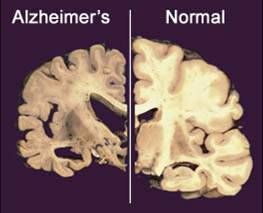It’s not really a group that comes to mind as one of influence, but the Left has long made a habit of following the recommendations of the World Economic Forum, a Non-Governmental Organization (NGO) whose stated mission is to “bring together government, businesses and civil society to improve the state of the world.”
The WEF was the brainchild of Klaus Schwab. Founded by Schwab in 1971, the German engineer shepherded the organization and slowly built its influence over the decades to the point where it became a go-to source for leftist inspiration. It culminated with the 2016 statement from the group, written as a WEF release by Danish Parliament member Ida Auken:
Welcome to the year 2030. Welcome to my city — or should I say, “our city.” I don’t own anything. I don’t own a car. I don’t own a house. I don’t own any appliances or any clothes.
It might seem odd to you, but it makes perfect sense for us in this city. Everything you considered a product, has now become a service. We have access to transportation, accommodation, food and all the things we need in our daily lives. One by one all these things became free, so it ended up not making sense for us to own much.
As that statement came to be understood, “you will own nothing and be happy.”
Yet while the WEF preached this philosophy, Schwab allegedly worked in the opposite direction of owning nothing. While he was already planning to step down from the WEF by 2027, the timetable was accelerated by a surprise announcement to the WEF board last week: “Following my recent announcement, and as I enter my 88th year, I have decided to step down from the position of Chair and as a member of the Board of Trustees, with immediate effect.”
The shock of the Easter Sunday event quickly turned to suspicion as it was announced that a whistleblower had accused Schwab of, er, reallocating WEF funds for personal use. The letter “included allegations that Klaus Schwab asked junior employees to withdraw thousands of dollars from ATMs on his behalf and used Forum funds to pay for private, in-room massages at hotels,” The Wall Street Journal revealed. “It also alleged that his wife, Hilde, a former Forum employee, scheduled ‘token’ Forum-funded meetings in order to justify luxury holiday travel at the organization’s expense.”
Yet while Schwab denied the allegations and threatened to sue the unnamed whistleblower who made them, the fact that he didn’t stay and fight for his good name is telling. Even though he forfeited a five million Swiss franc pension as a “sign of good faith,” the fact remains that Schwab hasn’t lived like a pauper over the years, with a net worth safely estimated between $10 and $25 million and rumored to be up to $1.7 billion. Add that all up and Schwab earns the comparison to being a Bond villain — as does his interim successor, Nestle chairman Peter Brabeck-Lemathe. (Brabeck-Lemathe earned their ire by stating that corporations should control access to tap water.)
And there you have it. Once again, we find out that forming a successful leftist organization can be a ticket to wealth. Other examples include the Southern Poverty Law Center and Black Lives Matter. Schwab boosted a group once envisioned as a symposium for European business leaders to learn about American management practices into a destination — one that attracted political and business leaders from around the globe to converge annually at Davos, Switzerland, and pay handsomely for the privilege of belonging.
It appears some of that handsome payment went into the hands of Schwab and his family. But all good grifts must come to an end, and bailing on the WEF may keep Klaus a step or two ahead of the courts.

















